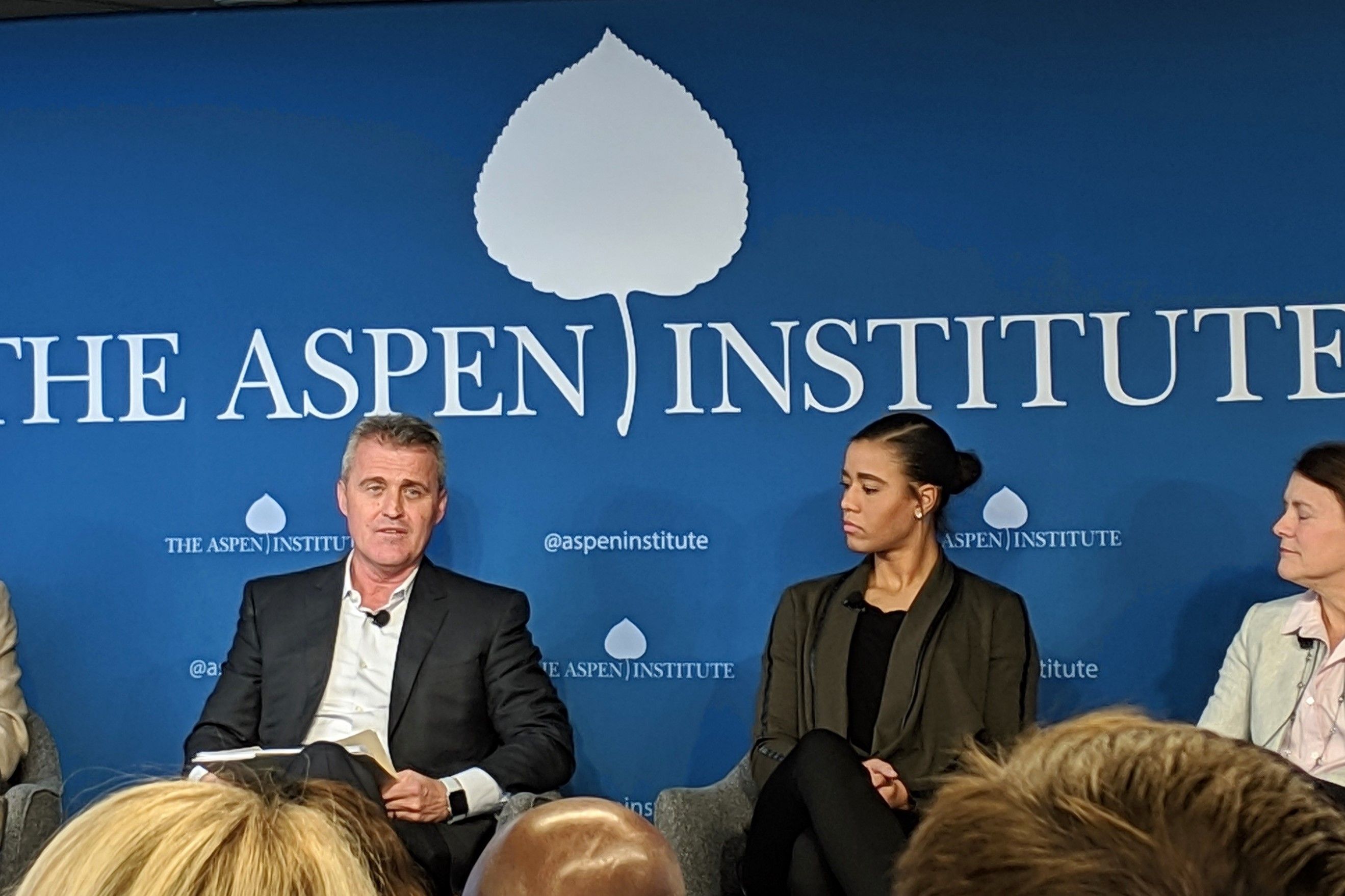By Lillian Goodwin
For The Diamondback
When Maryland men’s soccer coach Sasho Cirovski moved from Macedonia to North America as a child, he didn’t speak English, and his parents worked blue-collar jobs to put food on the table.
He found his purpose in sports and grew close with his athletic coaches and teachers.
Decades later, Cirovski, one of the winningest college soccer coaches ever, thinks there is too much emphasis on wins and losses and not enough focus on young athletes’ personal development.
“No trophies. There should be no trophies!” Cirovski said to attendees at the Aspen Institute in Washington, D.C. on Tuesday. “That’s problematic.”
Cirovski joined Natasha Cloud of the WNBA’s Washington Mystics, freelance writer Linda Flanagan and former U.S. Education Secretary Arne Duncan on a panel to discuss the impact coaches have on young athletes’ lives.
“It’s a massive responsibility,” Cirovski said. “We have to make sure coaches understand that they are going to influence the minds of young people. The question is how are they influencing them.”
Over his 26 years in College Park, Cirovski has amassed an impressive collection of achievements, including three national championships, 2016 Big Ten Coach of the Year and 25 straight winning seasons. What’s more important than awards, Cirovski said, is building self-awareness in his players through teaching them to set up their own drills and take charge of their own improvement.
The Aspen Institute, a D.C.-based think tank, organized the event to launch its newest report, “Calls for Coaches,” a coaching playbook based on research commissioned from the Harvard Graduate School of Education to explore the role sports can play in the development of cognitive, social and emotional skills in children.
Duncan, who played college basketball during his time at Harvard, said the most influential adult figure in a child’s life is their coach. Unlike a teacher, Duncan said, a child will stay with his or her coach for more than a semester — and sometimes years.
Cloud played on this university’s women’s basketball team for the 2010-11 season before transferring to St. Joseph’s. She said her college coaches — Brenda Frese with the Terps and Cindy Griffin with the Hawks — didn’t provide the deep personal relationship that she was looking for.
“Somewhere in that mix of ‘I need wins and losses, this is how I provide for my family,’ it became only a player-and-coach relationship and nothing more,” she said.
Years later, Cloud said her relationship with Frese and Griffin has improved.
“If we had that type of relationship when I actually played for you in college, it would have made the biggest difference in how I performed for you on the court,” she said. “To know that, regardless if I have a good night or a bad night, I still have my relationship with my coach and we’re still in a good mindset even after I shoot 0-for-11, that’s super important for me.”
It is common for a coach to have extensive involvement in the players’ families or personal lives, Duncan added, because of this and sports’ collaborative nature, coaches can teach athletes lessons that teachers cannot.
Tom Farrey, the executive director of the institute’s Sports and Society Program, called the panel the most important part of the program’s three thus far because of how much coaches mean to players.
“How coaches work with you, the skills they teach, the values they impart, the ethics they model and the lessons they share — [they] don’t just build athletes, they build citizens,” Farrey said. “If coached well, children will learn social and emotional skills that will serve them for life.”



